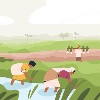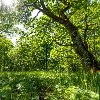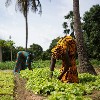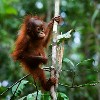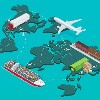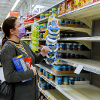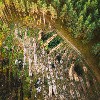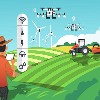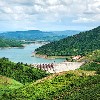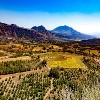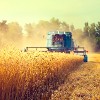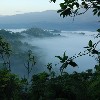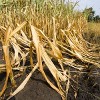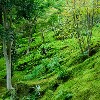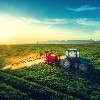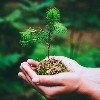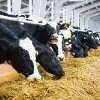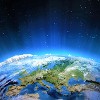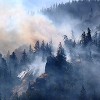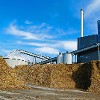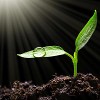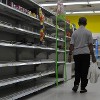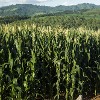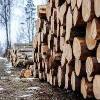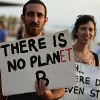2020 ESM News
2020
Pathways to sustainable land use and food systems
The findings of a new report by the Food, Agriculture, Biodiversity, Land-Use, and Energy (FABLE) Consortium, suggest that integrated strategies across food production, biodiversity, climate, and diets can meet the objectives of the Paris Agreement and the Sustainable Development Goals (SDGs). More
Monitoring biodiversity and ecosystems in Europe
IIASA is collaborating with 14 partner institutions from Belgium, Bulgaria, Estonia, Germany, the United Kingdom, the Netherlands, Portugal, and Spain on a new research project aimed at developing a transnational system for monitoring biodiversity and ecosystems in Europe. More
Informing policy for more resilient food systems in West Africa
Even before COVID-19, the threat of climate change was affecting the ability of West African food systems to deliver healthy, sustainable, and nutritious foods. In a recent paper published in Nature Food, an international team of researchers provide evidence-based policy recommendations to support West African governments in reforming food systems to make them more resilient. More
List of Highly Cited Researchers 2020 announced
We are proud to announce that several IIASA researchers have been named on the annual Highly Cited Researchers list from Clarivate. More
Air pollution implications of re-shaping future energy pathways
Amid deep disruption and uncertainty caused by the COVID-19 pandemic, a surge in well-designed energy policies is essential in forging a resilient energy system equipped to meet global climate goals as well as air quality standards. More
Informing the next generation of biodiversity goals
According to an international team of researchers, a ‘safety net’ made up of multiple, interlinked and ambitious goals is needed to tackle nature’s alarming decline. More
Pinpointing high impact areas for ecosystem restoration
As the world focuses on the dual crises of climate change and biodiversity loss, a new landmark study pinpoints the ecosystems that should be restored for the biggest climate and biodiversity benefits at the lowest cost. According to the authors, restoration can potentially be 13 times more cost-effective when it takes place in the highest priority locations. More
Investment in conservation efforts needs to be stepped up
National governments have fallen well short of their conservation commitments under the global nature conservation treaty, the Convention on Biological Diversity. An international consortium of scientists has conducted a global review of area-based conservation efforts, including both protected areas and other effective area-based conservation measures. More
Bending the curve of biodiversity loss
Plant and animal species across the world are steadily disappearing due to human activity. A major new IIASA-led study suggests that without ambitious, integrated action combining conservation and restoration efforts with a transformation of the food system, turning the tide of biodiversity loss by 2050 or earlier will not be possible. More
Evaluating the effectiveness of travel bans
With the reopening of flights during the summer holiday season in Europe, many countries have started to see an increase in COVID-19 infections. A new IIASA-led study sheds light on how COVID-19 spreads regionally and between countries, as well as on how effective governmental measures to curb the spread of the pandemic have been to date. More
Free trade can prevent hunger caused by future shifts in climate patterns
An international team of researchers investigated the effects of trade on hunger in the world as a result of climate induced crop yield changes. The conclusion is encouraging: international trade can compensate for regional reductions in agricultural production and reduce hunger when protectionist measures and other barriers to trade are eliminated. More
Closing the gap: Citizen science to monitor sustainable development
Citizen science could help track progress towards all 17 UN Sustainable Development Goals (SDGs). An IIASA-led study, for the first time, comprehensively analyzed the current and potential contribution of citizen science data to monitor the SDGs at the indicator level. More
Earth Challenge 2020: Calling on citizens to help support global food supply
IIASA and the European Space Agency (ESA) in partnership with the Wilson Center, the Earth Day Network and the US State Department are providing citizens with an opportunity to get involved in one of the world’s most challenging problems: how to provide enough, high quality, nutritious food to the ever expanding global population. More
Coronavirus: a wake-up call to strengthen the global food system
A new commentary in the journal One Earth highlights not only climate-related risks to the global food system, such as drought and floods, but also exposes the coronavirus pandemic as a shock to the system that has led to food crises in many parts of the world. To address the challenges of a globally interconnected food system, a systems approach is required. More
Why are we still failing to stop deforestation?
While national and international efforts to reverse the trend of deforestation have multiplied in recent years, there is still no clear evidence to suggest that these initiatives are actually working. A new paper published in One Earth, calls for a radically different approach that focuses on our understanding of how individuals make their choices about forests and livelihoods. More
Game-changing technologies to transform food systems
According to new research, a pipeline of disruptive technologies could transform our food systems, ecosystems, and human health, but attention to the enabling environment is needed to realize their potential. More
Exploring the impacts of climate change on hydropower production
A new study by researchers from IIASA and China investigated the impacts of different levels of global warming on hydropower potential and found that this type of electricity generation benefits more from a 1.5°C than a 2°C climate scenario. More
Towards a new generation of vegetation models
Plants and vegetation play a critical role in supporting life on Earth, but there is still a lot of uncertainty in our understanding of how exactly they affect the global carbon cycle and ecosystem services. A new IIASA-led study explored the most important organizing principles that control vegetation behavior and how they can be used to improve vegetation models. More
IIASA researchers win Innovative Applications in Analytics Award 2020
IIASA researchers, in collaboration with the International Maize and Wheat Improvement Center and the Alliance of Bioversity International and CIAT, have been awarded first place in the 2020 Innovative Applications in Analytics Award. More
SAS and IIASA call for crowd-driven artificial intelligence to help track deforestation
On the 50th anniversary of Earth Day, SAS and IIASA join forces to transform crowdsourced knowledge into actionable intelligence to help protect the planet. More
Returning land to nature with high-yield farming
The expansion of farmlands to meet the growing food demand of the world’s ever expanding population places a heavy burden on natural ecosystems. A new IIASA study however shows that about half the land currently needed to grow food crops could be spared if attainable crop yields were achieved globally and crops were grown where they are most productive. More
Shedding light on how much carbon tropical forests can absorb
Tropical forest ecosystems are an important part of the global carbon cycle as they take up and store large amounts of CO2. It is however uncertain how much these forests’ ability to take up and store carbon differ between forests with high versus low species richness. New IIASA research sheds light on this question aiming to enhance our ability to predict tropical ecosystems’ strength as global carbon sinks. More
2019
Climate change and the threat to global breadbaskets
Extreme climatic conditions could lead to an increased risk of unusually low agricultural harvests if more than one global breadbasket is affected by adverse climate conditions at the same time. The findings of a new IIASA study show that these breadbaskets, the geographical areas responsible for growing much of the world’s food, are at risk to produce enough wheat, maize, and soybean, due to extreme temperatures. More
Crowdsourcing landscape restoration assessment in Indonesia
The Urundata mobile application will allow Indonesians to be more involved in efforts to restore forests and landscapes in the country. Users can contribute by playing games to help interpret satellite imagery and gather information on the ground. More
Plants and fungi together could slow climate change
A new global assessment shows that human impacts have greatly reduced plant-fungus symbioses, which play a key role in sequestering carbon in soils. Restoring these ecosystems could be one strategy to slow climate change. More
A roadmap to make the land sector carbon neutral by 2040
Land is critical to human livelihoods and wellbeing, while actions related to land use also play an important role in the climate system. IIASA researchers contributed to the development of a new roadmap outlining actions on deforestation, restoration, and carbon cuts that could lead to the land sector becoming carbon neutral by 2040 and a net carbon sink by 2050. More
Assessing the benefits and risks of land-based greenhouse gas removal
IIASA researchers collaborated with colleagues at a number of international institutions to assess the benefits and risks associated with six different land-based greenhouse gas removal options in light of their potential impacts on ecosystems services and the UN Sustainable Development Goals. More
2018
Changes in agriculture could cut sector non-CO2 greenhouse gas emissions by up to 50%
The agricultural sector is the world’s largest source of non-CO2 greenhouse gas emissions, and IIASA-led research has found that changing agricultural practices and a shift in diet away from meat and dairy products could reduce the sector’s emissions by up to 50% by 2050 compared to a situation without mitigation efforts. More
European Commission long-term strategy on climate change underpinned by IIASA research
The European Commission has adopted a new long-term strategy, A Clean Planet for all, on how Europe can become climate neutral by 2050 and meet its Paris Agreement commitments, and IIASA research has contributed to the quantitative backbone. More
IIASA researchers among top 1% of most highly cited scientists
Several IIASA researchers from the Air Quality and Greenhouse Gases Program, the Energy Program, the Ecosystems Services and Management Program, and the Water Program are among the world’s most highly cited scientists, according to a new list published by Clarivate Analytics. More
Crowdsourced field data shows importance of smallholder farms to global food production
A new global field size data set collected as part of a crowdsourcing citizen science project by IIASA researchers has shown that the proportion of smallholder farms may be much larger than previously thought, contributing much more to global food production. More
Forests under threat
Options Winter 2018/19: The world’s forests are in serious trouble. IIASA researchers are exploring approaches for protecting the environment and ensuring the sustainable management of this important resource. More
A people-centered approach to limiting global warming
Options Winter 2018/19: IIASA’s Low Energy Demand scenario shows how to limit global warming to 1.5°C in a different way. More
Reducing US coal emissions through biomass and carbon capture would boost employment
Employing bioenergy with carbon capture and storage (BECCS), would not only retain 40,000 jobs currently held as part of the US coal industry but would create 22,000 new jobs in the forestry and transportation sectors by the middle of this century, according to new IIASA-led research. More
Nothing natural about nature’s steep decline: WWF report reveals staggering extent of human impact on planet
Humanity and the way we feed, fuel and finance our societies and economies is pushing nature and the services that power and sustain us to the brink, according to WWF’s Living Planet Report 2018. More
For a lower climate footprint, vegetarian diet beats local
A new study provides a more comprehensive accounting of the greenhouse gas emissions from EU diets. It shows that meat and dairy products are responsible for the lion’s share of greenhouse emissions from the EU diet. More
Reduction of soil microbes limit feedbacks in a warming climate
Soil microbes get more active in warmer temperatures, causing increased CO2 emissions. But a new study shows that in prolonged warming, the amount of microbial biomass decreases, balancing the effect. More
Paris climate targets could be exceeded sooner than expected
A new study has for the first time comprehensively accounted for permafrost carbon release when estimating emission budgets for climate targets. The results show that the world might be closer to exceeding the budget for the long-term target of the Paris climate agreement than previously thought. More
Remote islands harbor higher numbers of non-native species
Numbers of native species on islands decrease with greater remoteness, while the numbers of non-native species on islands increase, according to an international research team including IIASA researcher Florian Hofhansl. More
Climate taxes on agriculture could lead to more food insecurity than climate change itself
New IIASA-led research has found that a single climate mitigation scheme applied to all sectors, such as a global carbon tax, could have a serious impact on agriculture and result in far more widespread hunger and food insecurity than the direct impacts of climate change. Smarter, inclusive policies are necessary instead. More
IIASA researchers help EU states to assess forestry’s role in achieving climate commitments
IIASA researchers have led the development of new guidance for EU member states estimating greenhouse gas emissions and removals from their forests and developing plans to show how they will account for these emissions and removals in the future. More
IIASA signs MOU with Indonesia’s Institute Teknologi Bandung (ITB)
Researchers, scientists and experts from both sides will participate in the joint research project. IIASA will contribute its expertise on modelling while ITB makes their research Indonesia-specific. More
Brazil’s Forest Code can balance the needs of agriculture and the environment
If fully implemented, Brazil’s Forest Code, an environmental law designed to protect the country’s native vegetation and regulate land use, will not prevent growth in Brazilian agriculture, according to new IIASA-led research. More
Biorefineries will have only minimal effects on wood products and feedstocks markets
A new report from researchers from IIASA, Luleå University of Technology (LTU), and RISE Research Institutes of Sweden has shown that more biorefineries, which produce biobased fuels and chemicals, will have only a small effect on the availability and pricing of wood products and feedstocks. More
Citizen scientists across Europe can help monitor land-use change with new FotoQuest Go app
An expanded FotoQuest Go app, developed by IIASA researchers, launches today, and as well as now covering the whole of the EU rather than just Austria, it will have some other exciting new features. More
Thinking outside the box on climate mitigation
A new article lays the groundwork for alternative climate mitigation scenarios that place less reliance on unproven negative emissions technologies in the future. More

ESM News Archive
NEWS
"Climate Modernity" - The 24H Challenge: How do we want to live and act in the future in Styria ?
Health fears can increase pandemic isolation habits in older Europeans
How circular waste management systems can benefit the environment
Launch of the Northern African Applied Systems Analysis Centre
How we measure the effects of methane matters for climate policy


